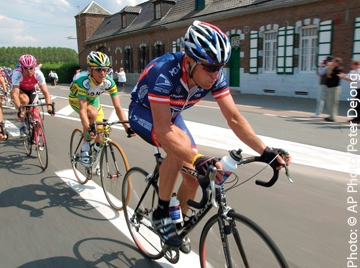 “We must learn to regard people less in the light of what they do or omit to do, and more in the light of what they suffer.”
“We must learn to regard people less in the light of what they do or omit to do, and more in the light of what they suffer.”
—Dietrich Bonhoeffer
Once upon a time, there was a man whom the world revered. He was athletic and exciting. He not only battled cancer, but conquered it and became a seven-time champion in his sport. He also launched a charity that raised nearly half a billion dollars for others affected by cancer. The man was a hero.
There was also a man who competed in the same sport, but was a cheater. He depended on performance-enhancing drugs to help him compete and win races. If people opposed him or didn't comply with his demands, he bullied and harassed them. If anyone tried to implicate him in a doping scandal, he sued them and frightened them so they would not reveal the truth. The man was a villain.
Oddly, these two characters are the same man. After years of denying the use of banned substances and in the face of overwhelming evidence, Lance Armstrong finally admitted to Oprah Winfrey that he lied and cheated. Very quickly, the media went from putting Armstrong on a pedestal to tossing him aside like yesterday's trash. There was no compassion. In fact, many seemed to take Armstrong's sins personally, like he had somehow sinned against them. Why is that?
When Armstrong confessed his cheating ways to Winfrey, the pundits were all chiming in with their opinions. Did he do enough in his confession? Did he seem sincere? Does he deserve a second chance?
Thankfully, that is a decision we don't need to make. I am sure we all get tired of seeing our heroes and role models make serious moral mistakes and then deny their culpability right up until they can no longer hide it. We've seen it happen in the church. It is deflating to our spirits and we wonder how we can trust people again.
But perhaps the answer to dealing with our disappointment in those who fail us is to stop holding them up so high in the first place. Maybe we need to take a more realistic view of the world and not exalt celebrities, professional athletes or even preachers beyond what we ourselves are capable of. Armstrong was defiant in the face of those who wanted the truth. He was ruthless in how he went about winning each of his seven Tour de France victories. It is hard to have much compassion for him. Yet the Bible says that we are to: “Be kind and compassionate to one another, forgiving each other, just as in Christ God forgave you” (Ephesians 4:32).
How do we get beyond our disappointment in others to the place where we can forgive them? The key lies in the last part of that verse. It is the recognition that the shortcomings in others—whether large or small—are essentially no different than our own flaws. Perhaps that is why we get so outraged with Armstrong and others. They remind us of our own inadequacies and the need for compassion and forgiveness.
I will be the first to admit that what Armstrong did was wrong. As a Salvationist and one who is passionate about caring for the weak, I am more appalled by Armstrong's bullying and harassment of other riders and participants than I am by his cheating. I am not making any excuses for him, but perhaps viewing him through the old paradigm of good/bad and heroes/villains doesn't help us to have compassion. In that model, he is immediately cast as the villain and undeserving of our compassion. Perhaps a better paradigm is one in which we acknowledge that our lifestyle and behaviour are influenced by a whole host of factors, many of which are beyond our control (e.g. family of origin, experience of trauma, brain pattern and development).
In his interview with Winfrey, Armstrong often alluded to his upbringing and how he and his mother “had their backs against the wall.” His childhood was a constant fight against feelings of inferiority. No doubt, there was a significant amount of shame that came along with that. Perhaps Armstrong used his career to feel superior and fight off the shame with which he had long been saddled. Undoubtedly, those feelings contributed to the bravado and his desire to win at all costs. Ultimately, he is responsible for his actions. But, maybe for a moment, we can look at Lance Armstrong the man—not the hero or villain—and realize that underneath the defiant exterior is an ashamed young boy with an inferiority complex. Maybe it means looking in the mirror and recognizing that the reason we hurt people and lash out is because we ourselves are hurting. While that doesn't excuse improper behaviour, it does help illicit empathy. Now let's ask ourselves: Does Lance Armstrong deserve compassion? Do we?
Major Juan Burry is the executive director of Victoria's Addictions and Rehabilitation Centre.









Leave a Comment